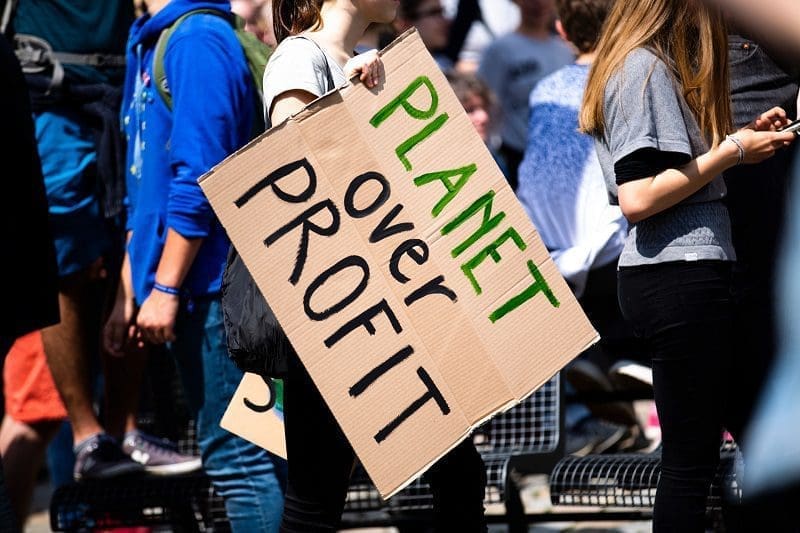Where does the youth climate movement go next? Climate Fight podcast part 4
Jack Marley, The Conversation
Locked out of conferences and company boardrooms, young people have tried to influence the international response to the climate crisis with strikes and protests.
What effect does this youth activism have? And where will the movement go next? This is part four of Climate fight: the world’s biggest negotiations, a series on the UN climate summit in Glasgow by The Anthill podcast.
“Young people represent a huge proportion of the global population and they have moral power”
Greta Thunberg’s lone demonstration outside the Swedish parliament in the late summer of 2018 inspired a global day of action involving 4 million people in 150 countries a year later. What was it about her school strike for the climate which seemed to capture the world’s attention? “Young people represent a huge proportion of the global population and they have moral power,” Harriet Thew says, a researcher in climate change governance at the University of Leeds.
Photo by Mika Baumeister via Unsplash
Thew studies the participation of young people in the UN climate negotiations. Her research has revealed how younger generations have helped reform UN policy on the education students receive about climate change in schools and universities. Beyond that though: “There isn’t a clear role for young people within the decision-making process.”
“When the school strikes started … I realised that no one else was going to do it for us”
Young activist Abel Harvie-Clark from Newcastle in northern England was frustrated with the situation. “When the school strikes started … I realised that no one else was going to do it for us.” Speaking with Thew, Harvie-Clark described his early experiences in the youth climate movement.
I started getting together with other people in my sixth form and organised a walk-out of about 70 people. Being part of that protest … revealed the wider struggle that we have on our hands.
This story is part of The Conversation’s coverage on COP26, the Glasgow climate conference, by experts from around the world.Amid a rising tide of climate news and stories, The Conversation is here to clear the air and make sure you get information you can trust. More.
The school climate strikes were the first acts of political expression for many young people. Over the last few years, the movement that grew out of a common demand for generational justice has channelled many different perspectives on the climate crisis, as Thew explains:
We know that climate change doesn’t affect everyone equally. Members of the same local communities … can have quite different experiences, including, women and girls, people living in poverty, people of colour [and] people with disabilities … Youth intersects with all of those groups and that produces unique challenges.
Momentum was with the youth climate movement as it entered 2020, but then the pandemic happened. As lockdowns restricted public gatherings, activists were forced to accept that they were in for a long fight. For Harvie-Clarke, that meant connecting the youth movement with related struggles for climate justice.
“We need to keep educating ourselves on and keep learning about the struggles that people have been fighting against climate change,” he said.
Young people are trying different methods in their pursuit of change. Not all of them see themselves as activists, according to Lynda Dunlop, a senior lecturer in science education at the University of York. She spoke with teenagers living in parts of England and Northern Ireland where companies have started fracking for gas.
“They were concerned about fracking in their local community, but also on the impacts of fossil fuel extraction on the climate,” Dunlop said. “One of the things I found surprising was their preference for other forms of political participation. Things like making legal challenges, signing petitions, writing to MPs.” She said they “respected the processes and wanted them to work” and were frustrated when they didn’t, “regardless of whether they were taking part in protest or not”.
they “respected the processes and wanted them to work” and were frustrated when they didn’t
Climate-conscious young people are used to being disappointed by world leaders. But strikes are resuming and youth activists are better informed than ever. Their movement may be only just beginning.
The Climate Fight podcast series is produced by Tiffany Cassidy. Sound design by Eloise Stevens and the theme tune is by Neeta Sarl. The series editor is Gemma Ware.
Newsclips in this episode from Connect4Climate, ABC News In Depth, Guardian News and ITV News.
A transcript of this episode is available here.
You can find us on Twitter @TC_Audio, on Instagram at theconversationdotcom or via email. You can also sign up to The Conversation’s free daily email here. You can listen to The Anthill podcast via any of the apps listed above, download it directly via our RSS feed, or find out how else to listen here.
Climate Fight: the world’s biggest negotiation is a podcast series supported by UK Research and Innovation, the UK’s largest public funder of research and innovation.
Jack Marley, Environment + Energy Editor and Host of the Climate Fight podcast series, The Conversation
This article is republished from The Conversation under a Creative Commons license. Read the original article.
Main photo by Markus Spiske via Unsplash


